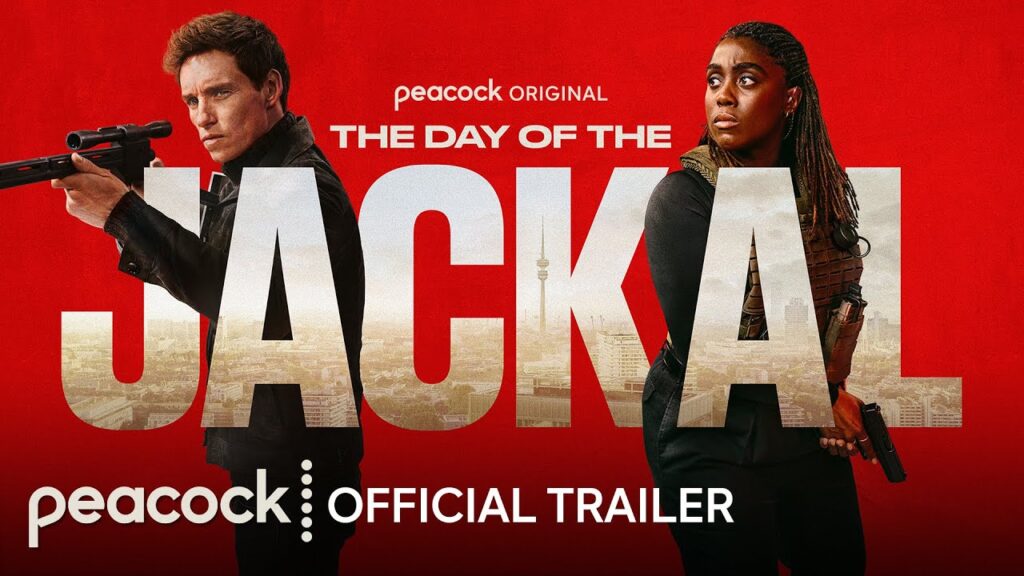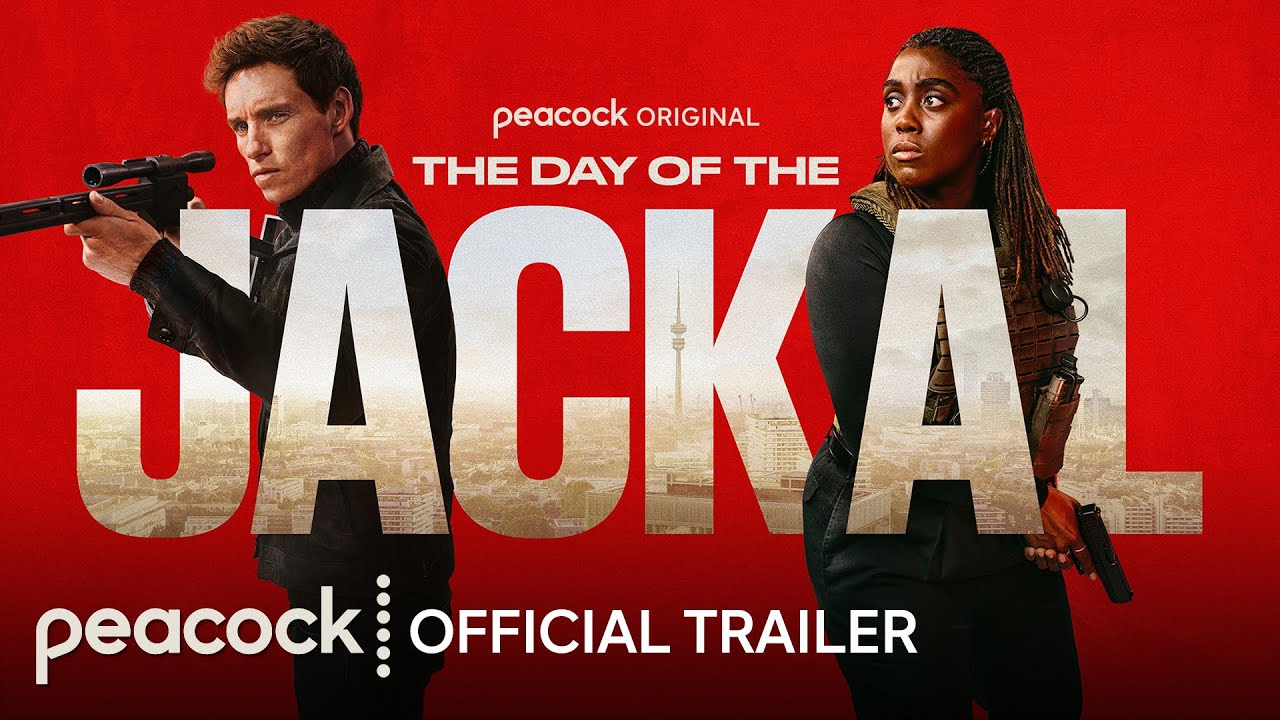
The Day of the Jackal
The Day of the Jackal: An Extensive Overview
Table of Contents
- Introduction
- The Starting points of “The Day of the Jackal”
- 2.1 The Novel by Frederick Forsyth
- 2.2 Early Gathering and Fame
- Plot Summary
- 3.1 The Death Plot
- 3.2 The Quest for the Jackal
- Characters and Performances
- 4.1 The Jackal
- 4.2 The Vital Supporting Characters
- Themes and Motifs
- 5.1 Political Interest and Reconnaissance
- 5.2 The Idea of Amazing skill and Commitment
- 5.3 The Job of Character and Secrecy
- The Film Adaptation
- 6.1 Chief Fred Zinnemann’s Methodology
- 6.2 Realistic Style and Methods
- Critical Reception
- 7.1 Introductory Surveys
- 7.2 Long haul Heritage and Impact
- The 1997 Remake
- 8.1 Contrasts from the First
- 8.2 Gathering and Analysis
- Conclusion
- Frequently Got clarification on pressing issues (FAQ)
- Introduction
The Day of the Jackal is an English French political spine chiller movie delivered in 1973, coordinated by Fred Zinnemann. In light of Frederick Forsyth’s top rated novel, the story rotates around a carefully arranged death endeavors against French President Charles de Gaulle. With its savvy narrating, complex characters, and thrilling air, the film has turned into an exemplary of the class. This article gives an inside and out take a gander at the beginnings, plot, characters, topics, and basic gathering of The Day of the Jackal, as well as the 1997 American change.
https://dramagrid.com/american-drama/: The Day of the Jackal- The Beginnings of “The Day of the Jackal”
2.1 The Novel by Frederick Forsyth
Frederick Forsyth’s 1971 novel, The Day of the Jackal, is a fundamental work in the class of political thrill rides. Forsyth, a previous columnist, was enlivened by genuine occasions and made a story that is both conceivable and riveting. The plot bases on an expert professional killer recruited by a gathering of French fanatics to kill President Charles de Gaulle. The Jackal, the professional killer, is depicted as a profoundly talented and working out person, whose groundwork for the mission is both calculated and chilling.
Forsyth’s utilization of certifiable subtleties, for example, the political environment in 1960s France and the complexities of knowledge tasks, added a feeling of authenticity to the story. The novel was a prompt achievement, commended for its strained pacing, complex plot, serious areas of strength for and advancement.
2.2 Early Gathering and Popularity
Upon its delivery, the original immediately acquired a wide readership. It was lauded for its thrill ride components as well as for its definite and refined account structure. Forsyth’s portrayal of the Jackal as a cool, dispassionate figure, close by the ingenuity of the police and insight administrations attempting to forestall the death, made the story both convincing and conceivable. The original’s prosperity prepared for the film variation, which would additionally lift its place in mainstream society.
- Plot Summary
3.1 The Death Plot
Set against the background of 1960s France, the plot of The Day of the Jackal follows the endeavor of a baffling professional killer, referred to just as “The Jackal.” He is recruited by a gathering of French fanatics who look to eliminate President Charles de Gaulle from office because of his choice to give freedom to Algeria. The Jackal is a specialist in his field and is employed in view of his standing for accuracy and effectiveness.
The story centers around the Jackal’s fastidious making arrangements for the death, which includes the obtaining of misleading characters, the investigation of de Gaulle’s schedules, and the production of an intricate arrangement to complete the homicide. The death is set to occur during a public occasion, where de Gaulle will be powerless against an assault.
3.2 The Quest for the Jackal
As the Jackal gets ready to complete his central goal, French police and knowledge organization’s, including a canny investigator named Claude Lebel, start to surround him. Lebel is a calculated and hounded examiner who tirelessly tracks the Jackal across Europe. The film follows the extreme waiting game between the professional killer and the specialists, as the two sides utilize each asset available to them to one or the other do or defeat the plot.
The pressure works as the Jackal’s character stays concealed for the majority of the film, with Lebel bit by bit revealing hints that lead him closer to catching the professional killer. The plot finishes in an exhilarating, high-stakes succession where the Jackal’s destiny and the existence of President de Gaulle remain in a critical state.
Characters and Performances
4.1 The Jackal
The personality of the Jackal, depicted by Edward Fox, is one of the film’s characterizing components. Not at all like many activity film lowlifes, the Jackal is depicted as cool, computing, and profoundly proficient. Edward Fox’s depiction is unpretentious and chilling, with very little discourse, permitting his activities and disposition to impart his personality’s heartless effectiveness. The Jackal isn’t driven by feeling, however by a profound feeling of incredible skill and a determined spotlight on his main goal.
4.2 The Key Supporting Characters
Claude Lebel (Michel Lonsdale): The French criminal investigator entrusted with finding the Jackal. Lebel is deliberate, shrewd, and determined. His personality diverges from that of the Jackal, as he addresses the powers of request and equity.
Charles de Gaulle (Rudolf Walker): In spite of the fact that he assumes a more modest part in the film, de Gaulle’s presence is pivotal to the plot. He is depicted as a man of conviction and authority, ignorant about the approaching danger against his life.
The Collaborators: A progression of minor characters, including individuals from the radical gathering who recruit the Jackal, assume a supporting part in propelling the plot, however they remain generally optional to the focal clash between the Jackal and Lebel.
- Topics and Motifs
5.1 Political Interest and Espionage
At its center, The Day of the Jackal is an account of political interest, set in the laden post-frontier time of French history. The film looks at the lengths to which gatherings will go to accomplish political finishes, as well as the job of secretive tasks in forming foreign relations. The plot’s emphasis on a high-profile death endeavor highlights the subject of political shakiness and the delicacy of force.
5.2 The Idea of Amazing skill and Dedication
The Jackal is depicted as the encapsulation of impressive skill. His fastidious preparation, his capacity to stay isolates from feeling, and his persistent quest for flawlessness all lift him above run of the mill professional killers or hoodlums in film. His incredible skill is reflected by the persistent devotion of Claude Lebel, who comparably displays a determined quest for equity.
5.3 The Job of Personality and Anonymity
A focal subject in The Day of the Jackal is the job of character and secrecy. The Jackal’s capacity to accept different personalities is critical to his prosperity, as it permits him to work undetected. Conversely, Claude Lebel’s examination is prevented by the Jackal’s namelessness, featuring the test of recognizing a nondescript foe in a universe of mysteries.
6. The Film Adaptation
6.1 Chief Fred Zinnemann’s Approach
Fred Zinnemann, the overseer of The Day of the Jackal, is known for his emphasis on authenticity and anticipation. Zinnemann’s bearing in this film keeps a cautious harmony among pressure and the sluggish uncover of data, keeping the crowd nervous all through. His way to deal with pacing is intentional, and the anticipation constructs consistently as the film advances.
Zinnemann abstains from over-sensationalizing the activity, picking rather to accentuate the preparation and the knowledge behind both the death plot and the examination. The outcome is a calculated, practically procedural film that approaches its topic with deference and reality.
6.2 Artistic Style and Techniques
The film utilizes a muffled variety range, frequently deciding on downplayed special visualizations to improve the film’s authenticity. Zinnemann utilizes wide shots to show the tremendousness of the settings, for example, the packed roads of Paris or the detached provincial regions where the Jackal works. The cinematography, joined with a moderate however sensational score, adds to the strained environment that overruns the film.
7. Basic Reception
7.1 Beginning Reviews
Upon discharge, The Day of the Jackal got boundless basic approval. It was adulated for its clever screenplay, dramatic story, and strong exhibitions, especially by Edward Fox as the Jackal. The film’s gradual process strain and point by point depiction of the death plot put it aside from different thrill rides of now is the right time.
7.2 Long haul Heritage and Influence
The film’s impact on the thrill ride sort couldn’t possibly be more significant. It has been refered to as a motivation for the overwhelming majority later movies, remembering those for the government agent kind, and its reasonable portrayal of insight tasks and political death has turned into a sign of high-stakes spine chillers. The Day of the Jackal stays a benchmark for producers who plan to offset complex narrating with extraordinary tension.
- The 1997 Change of The Day of the Jackal
8.1 Contrasts from the Original
The 1997 change of The Day of the Jackal, coordinated by Michael Caton-Jones and featuring Bruce Willis as the nominal professional killer, is a more activity situated variation contrasted with the 1973 form. While it holds the center reason of an expert contract killer recruited to kill French President Charles de Gaulle, there are tremendous contrasts in the methodology and execution. The 1997 rendition adopts a more Hollywood-style strategy with quicker pacing, elevated activity groupings, and a more straightforward spotlight on the death plot, rather than the gradual process pressure and procedural focal point of the first.
Bruce Willis’ depiction of the Jackal is all the more clearly charming and sincerely expressive, though Edward Fox’s Jackal in the first is held and segregated. This change in portrayal prompts an alternate tone, causing the 1997 variant to feel more like a customary spine chiller with a more prominent accentuation on display. Furthermore, the revamp presents more origin story and profound profundity for the Jackal, especially encompassing his inspirations and individual life, which appears differently in relation to the emotionless, practically mechanical figure in Forsyth’s novel and the 1973 film.
8.2 Gathering and Criticism
The 1997 change got blended surveys. While it was commended for its exhibitions, especially Bruce Willis and Richard Gere (who plays a French knowledge official), numerous pundits thought that it is deficient in the pressure and complexity that made the first film a work of art. The activity weighty methodology and quicker pacing were viewed by some as diminishing the first’s more purposeful, tension driven account. Furthermore, the redo’s change in tone was a disputed matter for enthusiasts of the 1973 film, who valued its calmer, more cerebral way to deal with the story.
In spite of these reactions, the 1997 variant was as yet thought to be an engaging spine chiller for standard crowds, but less significant than its ancestor. The film excelled in the cinematic world, however it didn’t have an enduring social impression like the first. At last, it fills in as a cutting edge reconsidering that mistreats the source material, interesting to an unexpected crowd in comparison to the 1973 work of art.
